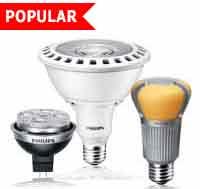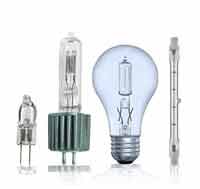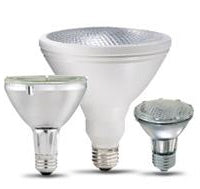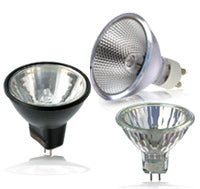LED Flood Lights: A Perfect Fit for Environmentally Friendly Lighting
 As the demands for environmentally friendly lighting solutions continue to increase, consumers are looking for green light bulbs to retrofit their existing halogen and incandescent fixtures with. Flood lights especially are an important market for green light bulbs because typically they use incandescent and halogen lamps, both of which are among the most inefficient light bulbs. Recently, manufacturers including Optima, Osram, and Silver have designed E27 and E26 medium screw base LED bulbs to replace halogen and incandescent floods while utilizing their preexisting fixtures. As with all LED lamps, these LED floods are extremely efficient and have excellent luminous efficacy. Osram’s PAR 30 13w LN bulb is intended to replace a 50w halogen flood. This bulb, along with many other LED bulbs, has a 50,000hour life hour rating.
As the demands for environmentally friendly lighting solutions continue to increase, consumers are looking for green light bulbs to retrofit their existing halogen and incandescent fixtures with. Flood lights especially are an important market for green light bulbs because typically they use incandescent and halogen lamps, both of which are among the most inefficient light bulbs. Recently, manufacturers including Optima, Osram, and Silver have designed E27 and E26 medium screw base LED bulbs to replace halogen and incandescent floods while utilizing their preexisting fixtures. As with all LED lamps, these LED floods are extremely efficient and have excellent luminous efficacy. Osram’s PAR 30 13w LN bulb is intended to replace a 50w halogen flood. This bulb, along with many other LED bulbs, has a 50,000hour life hour rating.One important advantage that LED floods have specifically over incandescent and halogen floods is that they remain cool during operation and have cool beam bulbs. Halogen produce large quantities of heat, thus presenting a hazard to small children who may touch the bulb or in some cases a fire hazard. LED bulbs generate close to no heat and for this reason are safer and much more efficient than halogen floods. The cool beam of LED flood lights will allow you to use flood lighting in more environments than halogen bulbs, including high-end retail lighting, accent/display lighting, and other display environments where a warm or hot light can not be used because it could damage whatever is being illuminated.
Of course like most LED technology today, LED floodlights are more expensive than halogen or incandescent bulbs. This is only a temporary situation, and moreover, the savings on your energy bills, replacement bulbs, as well as peace of mind, make LED floodlights a wise and thoroughly green investment for your home, office, or business. Check out what we have to offer today!












Comments